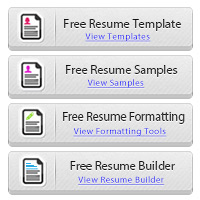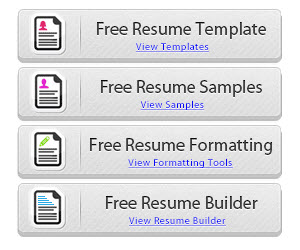What Do I Put on My Resume?
It’s pretty much the commonest of common knowledge that finding a job in the current climate is very difficult. I personally have been through this process
in recent months and so I know exactly how a lot of people reading this will be feeling at this precise moment in time. However, it’s a sad fact that there are no sure-fire ways to get yourself back into employment and so the biggest piece of advice I can offer is to keep persevering no matter how bleak things may seem right now.
Having said that though, there are a number of things that you can do to maximize your chances of finding that all important job sooner rather than later. These include conducting a broad and unrelenting job search, enrolling with a one or more recruitment agencies and, something which this article will look to address, perfecting your CV so that it puts you across in exactly the way you want to be seen.
So what exactly should, and what shouldn’t, be included on your CV/resume?
Don’t Include:
Personal Information –
The only personal information you specifically need to include on your CV is your name, contact details and a small bit about your hobbies. Including things like your sex, age and physical description could lead to this information being used to discriminate against you. Although it is not legal to do this there is no way of knowing if an employer has used this information to sway their decision or not so it’s best to leave it off.
Listing All Your Achievements –Although you will want to show everyone just how good you are by including some of your greatest life achievements; some of these will be more relevant than others. The boss of a mufti-national corporation isn’t going to care that you earned your camping badge in the boy scouts or that you are qualified to practice yoga so only include the awards and achievements that are relevant to the job you are applying for.
Reasons You Left Previous Jobs –
You may feel like you have to justify the reason you are currently looking for work, but there is no need to include the reasons why you have left previous jobs. If the employer wants to know this information they will ask in the interview and you can explain in person whilst putting everything into context. Putting these on your resume may just put people off as they won’t know the whole story.
Do Include:
Date Gaps In Your Employment History –
You may be tempted to cover up any date gaps that you have in your employment history by extending the dates of previous jobs or by not including any dates at all. However, employers can always find this information out when they ask for a reference from your old jobs and so it’s best to just be upfront from the start. Potential employers are sure to be understanding about the fact that you have been out of work and lying may put them right off.
Skills Learned –
When talking about your previous jobs it’s a great idea to include the skills that you have learned from these rather than just talking about what you did on a daily basis. By all means say that you answered and made calls but you should then add that this helped you to develop your communication skills and also improve your confidence when dealing with consumer/client queries. Laying it out like this will help the employer pinpoint which skills you could bring to the new role.
Your Life Outside Of Work –
You may think that employers are looking to hire workaholics who live and breathe the job that they do but this is not necessarily the case. Without going into too much irrelevant detail; it is a good idea to include a few things that you do in your spare time so that the employers can see that you do indeed have a life and that you are a real person. Having interests outside of work will show that you are a good social fit to any organization and that you like to enjoy a healthy, well balanced life.
Featured images:
 License: Creative Commons image source
License: Creative Commons image source
Chris Mayhew spent all of last summer looking for work and therefore knows exactly how difficult it is to find a job currently. He would recommend using one of the recruitment companies out there, such as Ashley Associates who are a .

